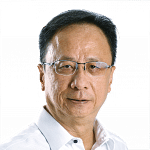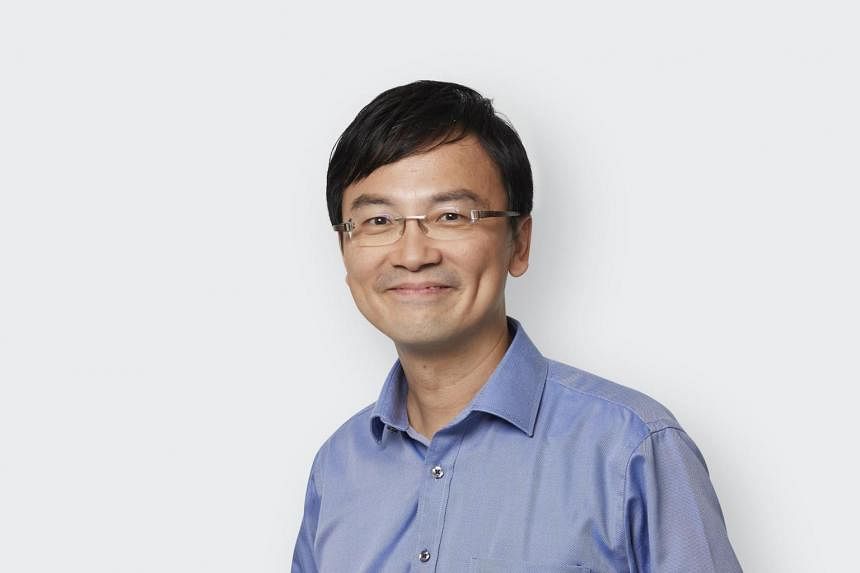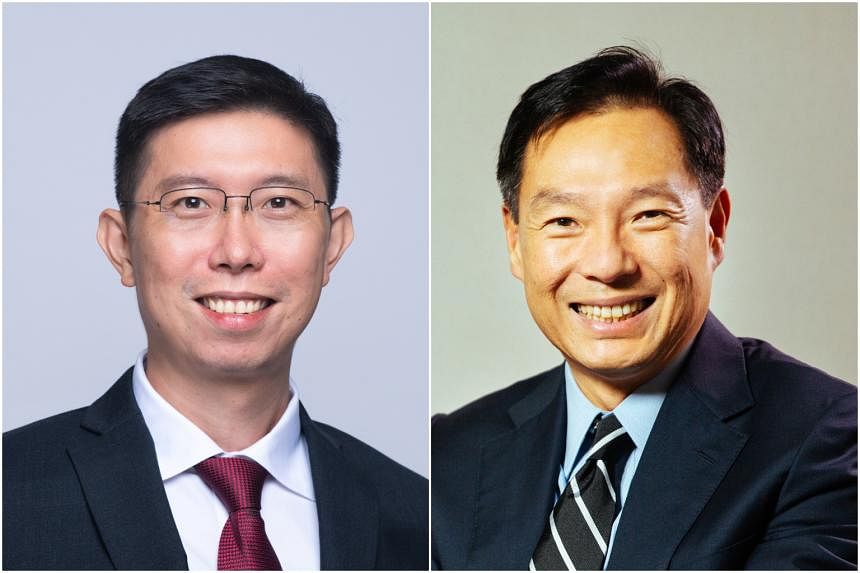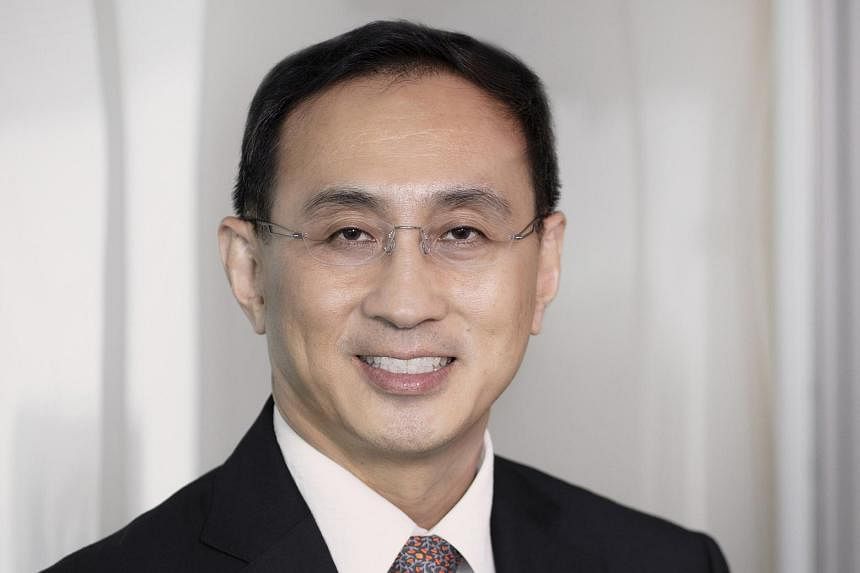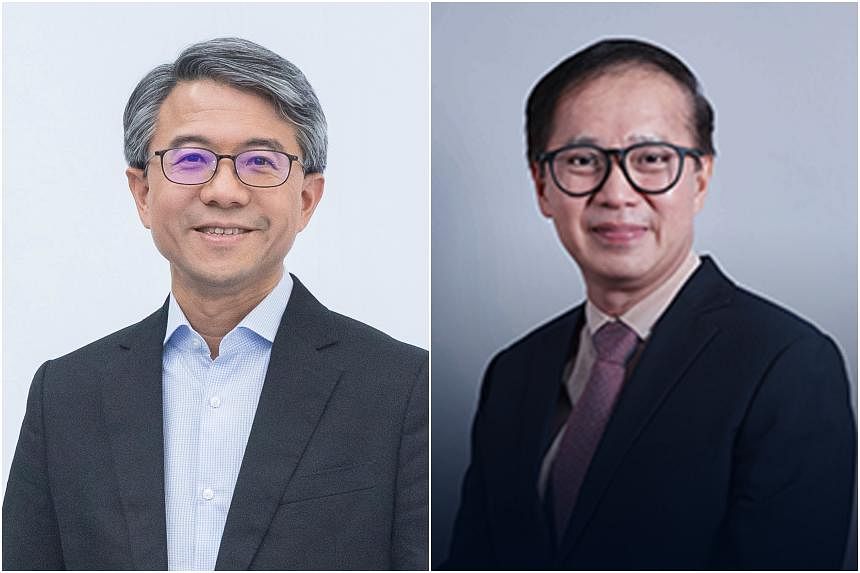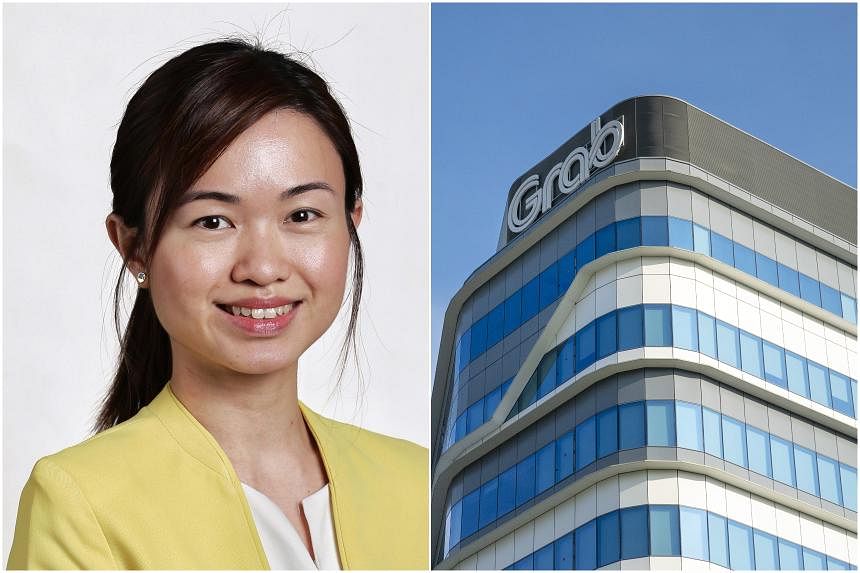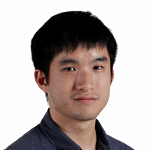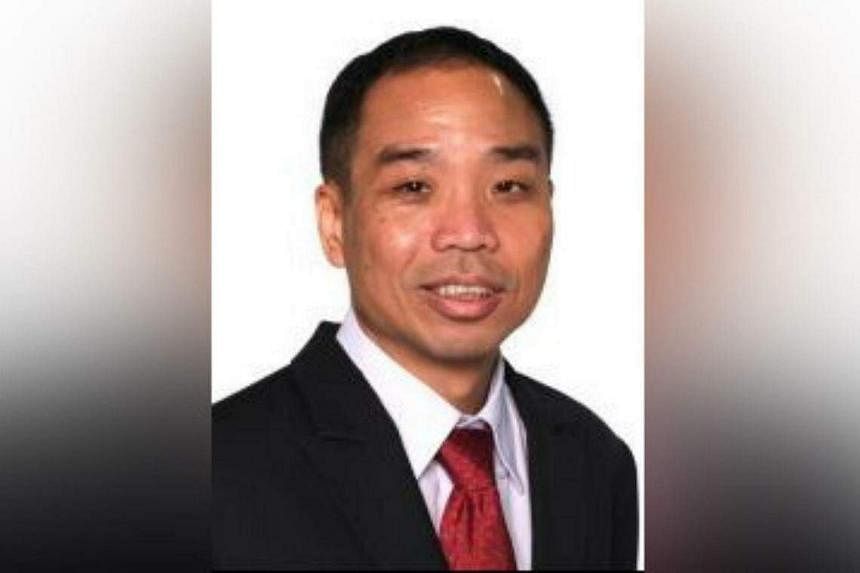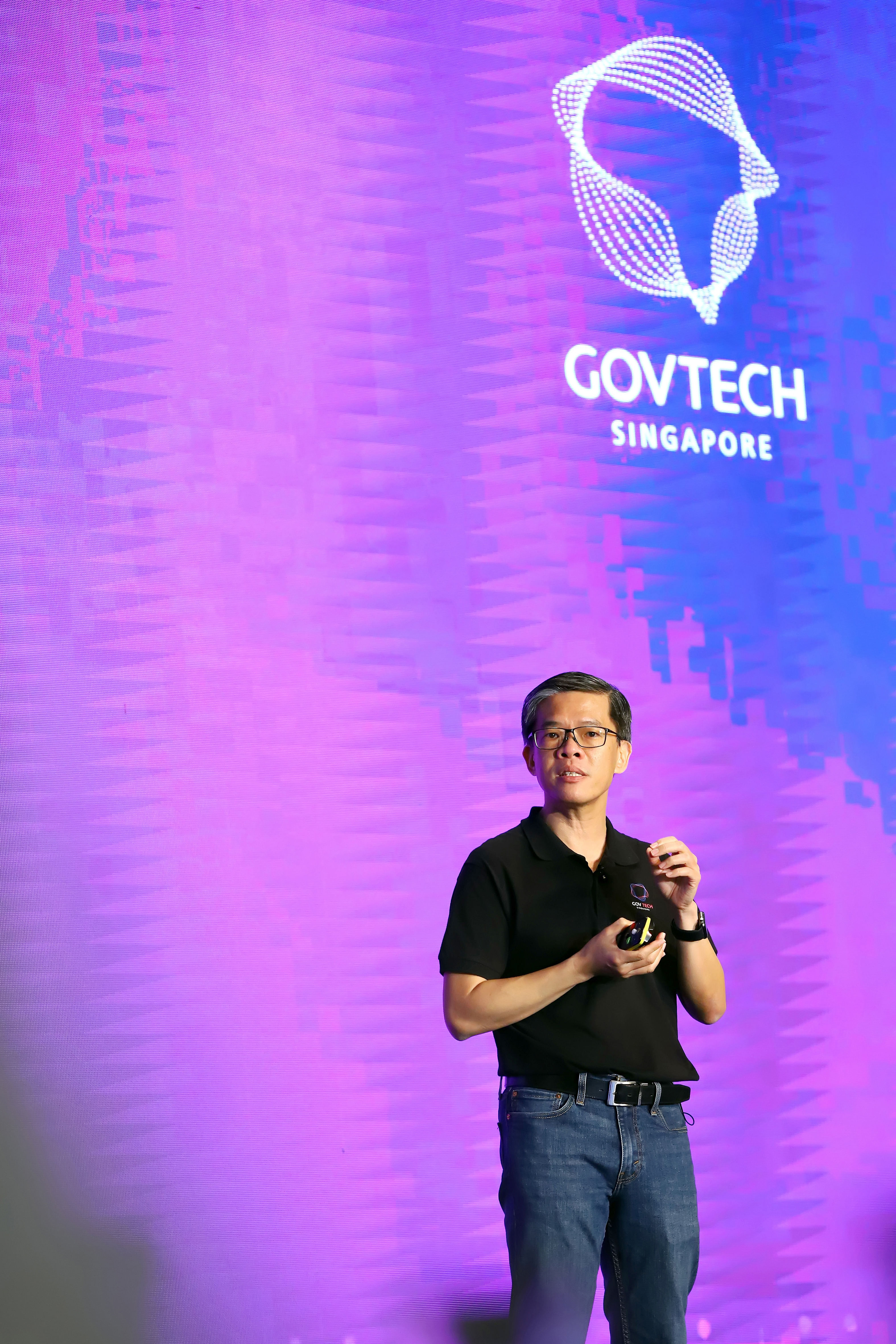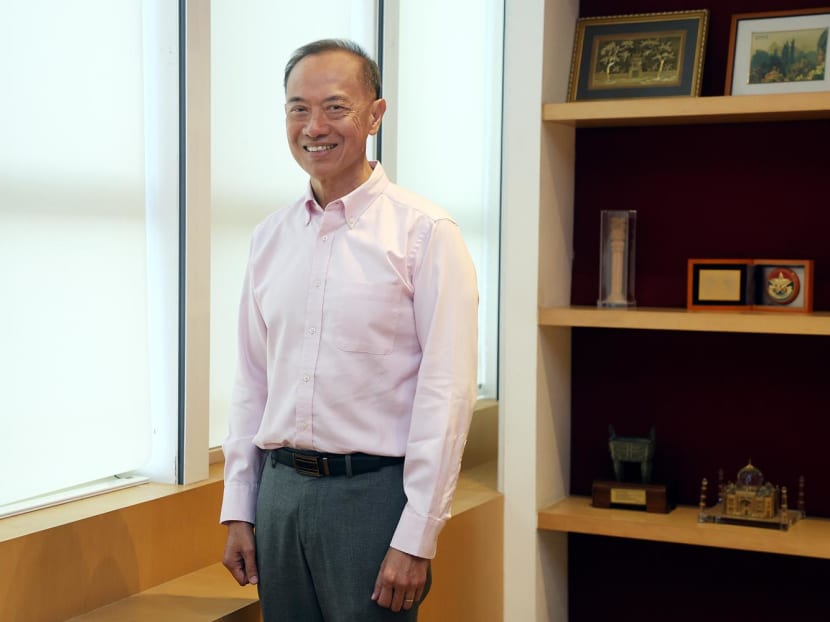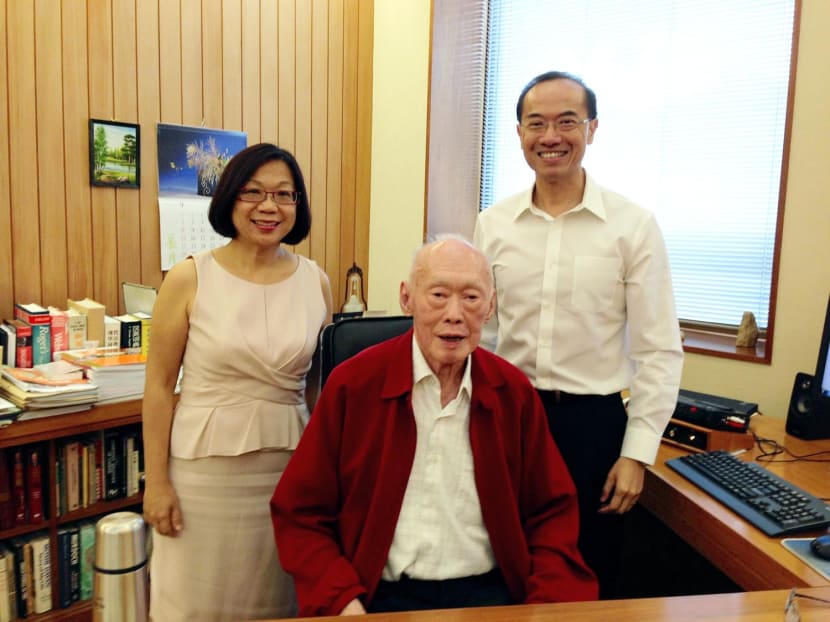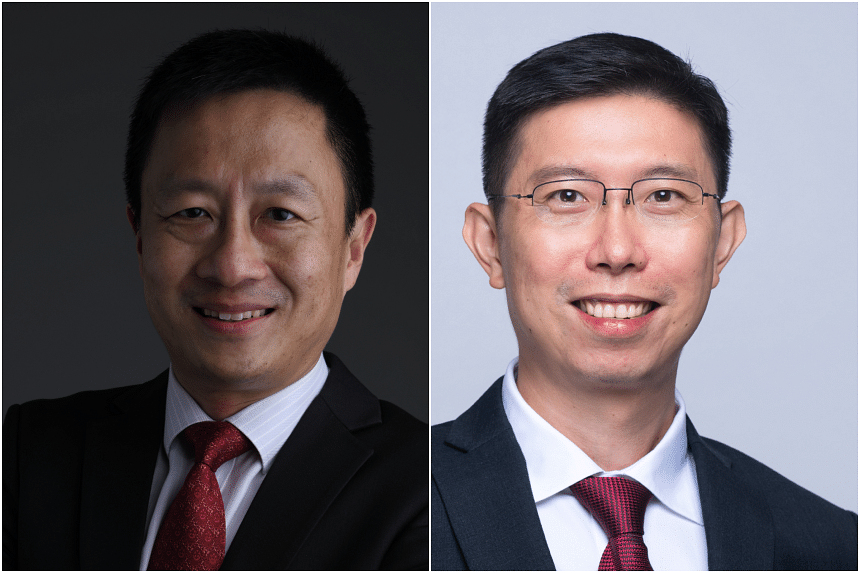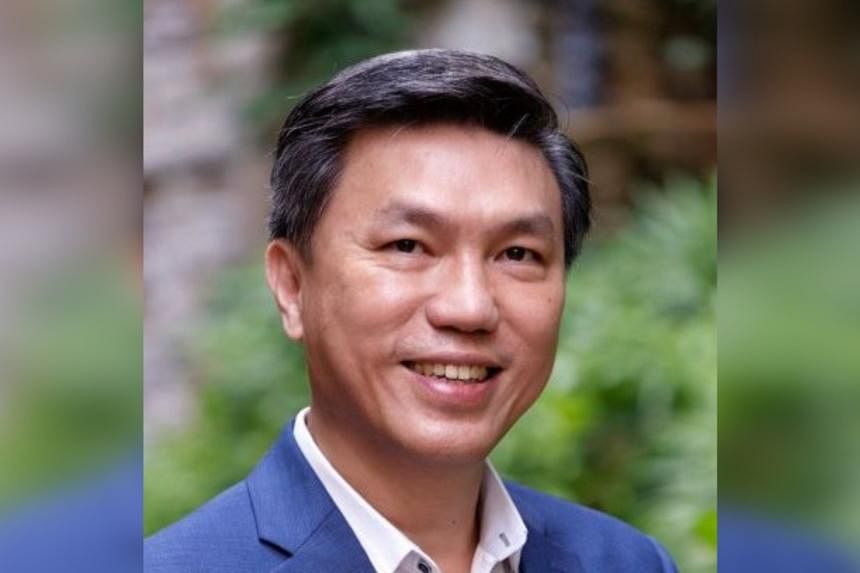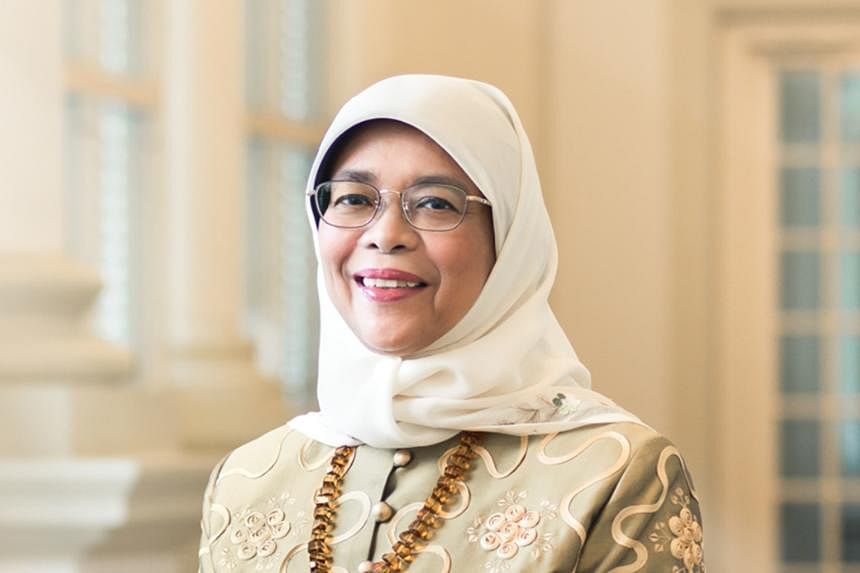PAP MPs, ministers and army generals have a safety parachute: they will be given jobs in government-linked companies after their political and/or military careers.
Cronynism #1:
"Following the watershed 2011 elections, Mr Lee Kuan Yew as well as former Prime Minister Goh Chok Tong also resigned from the Cabinet. Mr Yeo joined the private sector, even though he was approached by Mr Lee Kuan Yew who asked him if he needed help to get into Temasek Holdings or GIC."
Cronynism #2:
"The book also described how Mr Yeo found out later that Mr Lee had tried to recommend him to take over Mr Lee’s position on the JP Morgan International Advisory Board."
George Yeo's new book details 'tensions', complex ties with Lee Kuan Yew and why he nearly quit PAP after Aljunied GRC loss
Ooi Boon Keong/TODAY
Mr George Yeo at the Lee Kuan Yew School of Public Policy on Aug 14, 2023.
Follow us on
Instagram and
Tiktok, and join our
Telegram channel for the latest updates.
- Mr Lee Kuan Yew was a “complex man” whom former Foreign Minister George Yeo said he was able to watch at "close range" in his later years
- But their relationship had its ups and downs, with some "tensions" during the 2011 General Election when Mr Yeo lost his Aljunied GRC seat
- Some had felt that Mr Lee deliberately hurt the PAP Aljunied GRC's team chances with his remarks during the hustings, Mr Yeo's latest book stated
- Reflecting about his ties with Mr Lee in a joint interview by TODAY and CNA about his new book, Mr Yeo also spoke on how he nearly quit PAP
- The book, titled George Yeo: Musings, is set for release on August 31

BY
@SenToday
Published August 15, 2023
SINGAPORE — Former foreign affairs minister George Yeo said in an interview on Monday (Aug 14) that despite tensions between him and the late Lee Kuan Yew towards the end of Mr Yeo's political career in 2011, he was eventually able to find closure and reconcile with the man who first beckoned him to enter politics.
Speaking to TODAY and CNA in a joint interview about the final book of the trilogy George Yeo: Musings, set for release on Aug 31, Mr Yeo, 68, also recalled being dissuaded by friends from quitting the ruling People’s Action Party in 2011.
This was when Prime Minister Lee Hsien Loong told him to step down from the party’s central decision-making body following Mr Yeo's 2011 electoral loss, with former prime ministers Lee Kuan Yew and Goh Chok Tong also departing the Central Executive Committee (CEC).
To Mr Yeo, it was the late Mr Lee who harmed the chances of the PAP’s Aljunied Group Representation Constituency slate in the 2011 General Election (GE). Mr Lee antagonised Aljunied voters then by stating that those who chose the opposition would have “five years to repent”, wrote Mr Yeo in his book.
Summarising his feelings towards Mr Lee Kuan Yew years after the watershed 2011 polls, Mr Yeo said in the interview: “I sensed he knew what I knew about his thinking. I don't want to make this point too strongly. But I thought it was an interesting relationship from which I've benefited enormously.
“He was a complex man and it's such a privilege to have known a historical figure and watch him at close range in his later years,” added Mr Yeo, who is now a visiting scholar at the Lee Kuan Yew School of Public Policy and the founding patron of its Asia Competitiveness Institute.
During the interview, Mr Yeo
also addressed rumours about his candidacy in the ongoing Presidential Election and his support for presidential hopeful Ng Kok Song.
The 457-page book for the first time delved into his interactions with the late Mr Lee Kuan Yew and his relationship with the PAP after the opposition Workers' Party wrestled away Aljunied GRC in 2011.
Two chapters in the book were devoted to Mr Lee Kuan Yew, containing revelations such as how at one point after GE 2011, Mr Lee offered to give up his Tanjong Pagar seat and allow Mr Yeo to seek to reenter the Cabinet through a by-election.
The book is being published by World Scientific and put together by veteran media practitioner Woon Tai Ho and research assistant Keith Yap.
Clarifying that the book is not intended to be a treatise on Mr Lee Kuan Yew’s leadership, Mr Yeo said he wanted to give readers a sense of his personal relationship with Singapore's founding prime minister.
“I described more of my personal relationship with Mr Lee, which had different facets, and also (from) watching him close-up, almost like an assistant sometimes, which I thought might be of interest to others.
“There was some tension at the end. And I thought there was closure,” he said.
GEORGE YEO’S CAREER
Prior to joining politics, Mr Yeo served as a military officer in the army and air force, and later on in the Defence Ministry’s Joint Operations and Planning Directorate, taking over the role from then Brigadier-General Lee Hsien Loong, the current Prime Minister.
It was Mr Lee Kuan Yew who ultimately persuaded Mr Yeo to join politics in 1988 with the message that if Mr Yeo wanted to learn from him, it was best to “come in earlier when (Mr Lee) was not too old”.
The book also charted Mr Yeo’s 23-year political career as the Minister for Information and the Arts, Minister for Health, Minister for Trade and Industry, and Minister for Foreign Affairs.
He wrote about how in his first seven years in Government, Mr Lee Kuan Yew included him for most of his overseas trips, which “must have caused a certain amount of jealousy among my colleagues”.
“Watching the publicity I was getting, my mother, before she died, told me that while Lee Kuan Yew had an affection for me, I should never compete with his son,” wrote Mr Yeo in the book.
In one section of the book, Mr Yeo wrote about how he was the only one to respond positively to Mr Lee Kuan Yew’s suggestion to a group of ministers that married Singaporeans get an extra vote because they are likely to vote more responsibly.
To this, Mr Yeo made a proposal for “life cycle voting”, in which married Singaporeans get two votes until they reach their senior years when it reverts back to one. But the idea got no traction from others, including Mr Lee.
Nevertheless, Mr Yeo and Mr Lee Kuan Yew did not agree on every issue, with the latter having initial concerns about Mr Yeo’s Catholic and Teochew background.
“He knew I had different views. He would criticise me mildly, but he knew I was serious. And he never dismissed those views,” said Mr Yeo during the interview.
For example, he recalled how the Esplanade’s design and construction, which he oversaw as the Minister for Information and the Arts, were “bungled” by a mistake he made and nearly led to the project’s cancellation.
It led to the Esplanade’s design being presented to the Cabinet and the public as large blocks, which some referred to as tombstones or bras, instead of the actual design. After the presentation and the public outcry, the Cabinet decided to abort the project during a meeting in which Mr Yeo was absent.
“We mismanaged the PR (public relations) for the Esplanade’s design. There were so many caustic comments and (then-Senior Minister) Lee Kuan Yew wrote me a letter that none of those who were not connected to the project had a good thing to say about the design,” said Mr Yeo.
He replied with an explanation that the presentation mainly showed a schematic, and said in the interview that he had expected more back and forth exchanges with Mr Lee, but the latter did not pursue the matter further. Mr Yeo would later convince Prime Minister Goh Chok Tong to allow the project to continue.
“After the Esplanade was opened, (Mr Lee) paid a backhanded compliment which I treasured and cherished. He said for future projects of similar scale, it should be like the Esplanade. That was as close as you can get as praise from Lee Kuan Yew,” he said.
During his stint as Health Minister from 1994 to 1997, Mr Yeo was able to legislate Traditional Chinese Medicine (TCM), which Mr Lee Kuan Yew was known to be against.
But sensing that Mr Lee’s position had changed as his son was being treated by a Chinese medical doctor for lymphoma and that China had sent a “top-notch” masseur to treat the elder Mr Lee’s shoulder, Mr Yeo was able to broach the subject of TCM.
The law regulating TCM was introduced in 2000, and Mr Yeo was also able to approach issues that Mr Lee Kuan Yew had an opposite view of, such as the use of Chinese dialects and the Government’s position on casinos.
Asked how he was able to navigate difficult topics with Mr Lee, Mr Yeo said: “In my encounters with Mr Lee Kuan Yew, he may put you down, he may scoff at some of your views, but he will take you seriously, he will take an argument.
“I found that he had an open mind. He understood power, but for him the argument had to be won both morally and intellectually,” he said.
George YeoMr George Yeo and his wife Jennifer visiting Mr Lee Kuan Yew at his Istana office.
TENSIONS DURING THE 2011 GE
The turning point was the 2011 GE, when changes to the electoral boundaries that year meant that Mr Yeo’s constituency of Aljunied GRC took in a part of Cheng San GRC that the Opposition had done better in than other wards in previous elections.
For two days during the hustings, Mr Lee Kuan Yew made comments that “antagonised an already unhappy electorate in Aljunied”, wrote Mr Yeo.
“(Mr Lee) said it would not be the end of the world if Aljunied was lost. If Aljunied voters chose the opposition, they would have five years to repent,” he said, adding that Mr Lee only apologised for the remarks privately to Mr Yeo, but not publicly.
Mr Yeo wrote that he was disappointed with this turn of events.
“Lee Kuan Yew always told us that a public offence could not be made up by a private apology. As a politician, I understood the tactical purpose,” he said, adding that it drew the heat from elsewhere during an election when there was “considerable anger” against the PAP.
While many around Mr Yeo shed tears after his defeat at the ballot box, he did not, even though the loss was painful. Mr Yeo treated every political term as his last, he said.
“I might have to leave politics for various reasons — to take responsibility for mistakes, on a matter of principle, or if the voters no longer wanted me,” he wrote of his mindset as a politician.
A few days after his defeat, Mr Yeo announced that he would retire from parliamentary politics.
But the book documented how sometime later after Mr Yeo’s final Cabinet meeting, Mr Lee Kuan Yew called him on the phone with a “startling offer” to get him back into Cabinet by vacating his seat in Tanjong Pagar GRC.
“When Lee Kuan Yew calls you up to make a proposal, I took it very seriously and looked at it all around and discussed it with my wife and made a decision,” he said.
Mr Yeo would have declined Mr Lee’s offer, as getting back into Cabinet through a by-election would put him in a weak position, wrote Mr Yeo.
But this decision became unnecessary after PM Lee Hsien Loong told Mr Yeo that he was one of a few who could beat Dr Tan Cheng Bock who was the presidential hopeful in the 2011 Presidential Election. Mr Yeo offered to run should he be needed as a "spare tyre in an emergency", though this also did not materialise.
Later, PM Lee asked Mr Yeo to step down from the PAP’s CEC, which made Mr Yeo realise that his time in the party was up.
“I won my place in the CEC on my own merit and I still had a year to go. So when I was asked to stand down I took that as a signal that there's really no role for me to play in the party… I was disappointed but I accepted it,” said Mr Yeo.
“I considered resigning from the party. But I was advised by friends that I should not,” he said. Today, Mr Yeo is still a party member but does not attend its formal meetings.
FINDING CLOSURE
Following the watershed 2011 elections, Mr Lee Kuan Yew as well as former Prime Minister Goh Chok Tong also resigned from the Cabinet. Mr Yeo joined the private sector, even though he was approached by Mr Lee Kuan Yew who asked him if he needed help to get into Temasek Holdings or GIC.
Two years after the elections, in September 2013, Mr Yeo bumped into Mr Lee Kuan Yew’s press secretary by coincidence, who informed him about the latter’s declining health and urged Mr Yeo to go see Mr Lee at his office.
“I replied that I had no reason to invite myself. It would be different if he asked to see me. However, what (she) said weighed on me,” said Mr Yeo. “Without Lee Kuan Yew, I would not be where I was.”
So, Mr Yeo reached out to Mr Lee’s office, offering to convey birthday wishes as Mr Lee had turned 90. The offer was immediately accepted and, together with Mr Yeo’s wife, the two men met for the first time following 2011's events.
The book also described how Mr Yeo found out later that Mr Lee had tried to recommend him to take over Mr Lee’s position on the JP Morgan International Advisory Board.
Their last meeting was at the 2014 National Day Parade. Mr Lee died on March 23 the following year.
During the interview, Mr Yeo said the chapters on his interactions with Mr Lee were not challenging to write as he had penned things that he felt needed to be said.
While Mr Yeo stressed that he did not intend to critique Mr Lee Kuan Yew as a Singapore leader and that others are more qualified, he sought to provide a balanced and honest view of his own interactions with Mr Lee.
“I presented an overall picture (and) a total assessment of my experience with him. And I did ask a few friends to run through my chapters to give me their views, their reactions, whether it was too positive or negative, whether it was too kind or unkind.
“But no major changes (needed), because I was conscious of the balance right from the outset, in the words, and in the choice of pictures,” he said.
Of Mr Lee, Mr Yeo wrote in the book that his name is “inseparable from the idea of Singapore”.
Years after the death of Singapore's founding father, Mr Yeo would launch translated versions of Mr Lee’s memoirs in other countries such as France and Croatia, and noted how there was even a contraband copy of Mr Lee’s The Singapore Story in Russian that circulated throughout the former Soviet Union.
“Singapore was his obsession and everything he lived for. His imprint is everywhere,” wrote Mr Yeo.









